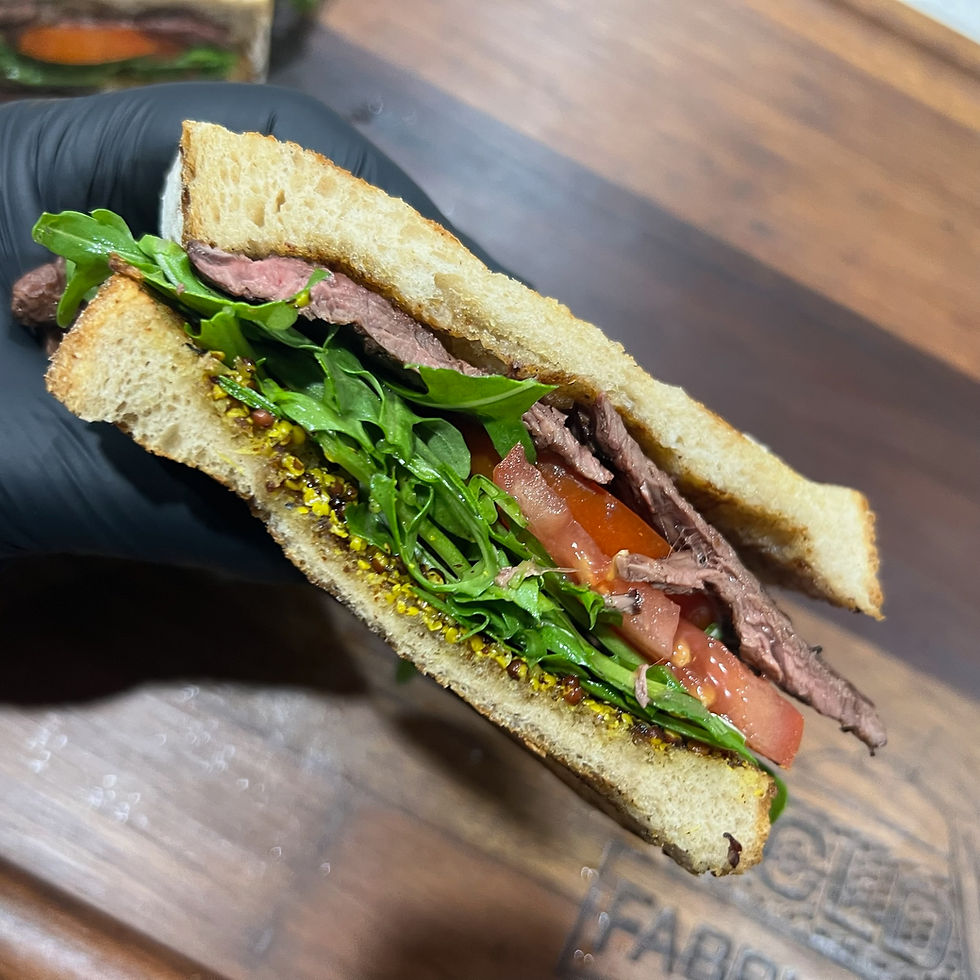How to Season your Mild Steel/Cast Iron Plate
- CLD Fabrication

- Jul 30, 2025
- 4 min read
Updated: Oct 25, 2025
When it comes to grilling, the quality of your BBQ plate can make all the difference. A well-seasoned BBQ plate not only enhances the flavour of your food but also protects your grill from rust and damage. Whether you are a beginner or a seasoned griller, understanding how to properly season your BBQ plate is essential for achieving mouth-watering results every time you fire up the grill.
Essential BBQ Plate Seasoning Tips for Every Griller
Seasoning your BBQ plate is a simple process that can significantly improve your grilling experience. Here are some practical tips to help you get started:
Choose the right oil: Use oils with a high smoke point such as vegetable oil, canola oil, or grapeseed oil. These oils withstand high heat without burning, creating a durable seasoning layer.
Clean your BBQ plate thoroughly: Before seasoning, make sure your BBQ plate is free from dirt, rust, and old food residues. Use a grill brush or scraper to clean the surface.
Apply oil evenly: Use a cloth or paper towel to spread a thin, even layer of oil over the entire surface of the BBQ plate.
Heat gradually: Slowly heat the BBQ plate to allow the oil to polymerize and bond with the metal. This process creates a non-stick, protective coating.
Repeat the process: For best results, season your BBQ plate multiple times, especially when it is new or after deep cleaning.
Following these tips will help you maintain a smooth, non-stick surface that enhances the flavour of your grilled foods and extends the life of your BBQ plate.

How do you season a new BBQ plate?
Seasoning a new BBQ plate is crucial to prepare it for cooking and to prevent rust. Here is a step-by-step guide to seasoning your new BBQ plate:
Initial Clean: Start by giving your item a thorough wash to help remove any leftover residues, protective layers, or mill scale left over from the manufacturing process. Use a mild dish detergent, warm water and a scourer to gently scrub then dry completely.
Heat: Preheat your BBQ (or oven) to approx. 400-450°F/200-230°C.
Place your product in your BBQ/oven for approximately 10mins during the preheat stage.
This ensures that the item is completely dry and that the oil can go on as thinly as possible.
Remove the item and let it cool, being mindful the item will now be hot.
Oil: Once the oven/bbq is at temp, spread a thin layer of oil onto the item with a paper towel or cloth. We recommend using an oil with a high smoke point such as canola or grapeseed oil but plain vegetable oil will work fine.
Ensure that there is oil covering the entire cooking surface, making sure to wipe any excess oil off with a paper towel. Excessive oil can lead to poor seasoning results, leaving a splotchy, or sticky coating.
Cure: Once coated place it into your BBQ (or oven) and leave the product in for an hour.
If you are using an oven, consider using a lined baking tray on the bottom rack, to catch any excess oil drips.
Cool: After at least an hour turn off the heat in your BBQ or oven and let it cool down naturally with the product still inside. Leaving the item inside to cool helps the seasoning bond to the steel.
Repeat as needed.
This process creates a durable, non-stick surface that improves with use. Regular maintenance seasoning after each use will keep your BBQ plate in top condition.

Benefits of Seasoning Your BBQ Plate
Seasoning your BBQ plate offers several advantages that enhance your grilling experience:
Prevents rust and corrosion: The oil layer acts as a barrier against moisture, protecting the metal from rust.
Creates a non-stick surface: Seasoning reduces food sticking, making cooking and cleaning easier.
Enhances flavour: A well-seasoned plate can add a subtle smoky flavour to your food.
Extends grill life: Proper seasoning protects your BBQ plate from wear and tear, increasing its longevity.
Improves heat distribution: The seasoning layer helps distribute heat evenly across the plate, ensuring consistent cooking.
By investing time in seasoning your BBQ plate, you ensure better performance and durability, making every BBQ session more enjoyable.

Maintaining Your Seasoned BBQ Plate
To keep your BBQ plate in excellent condition, follow these maintenance tips:
Clean after each use: While the plate is still warm, scrape off food residues with a grill scraper.
Avoid harsh detergents: Use mild soap and water sparingly to avoid stripping the seasoning.
Reapply oil regularly: After cleaning, apply a thin layer of oil to maintain the seasoning.
Store properly: Keep your BBQ plate dry and covered when not in use to prevent rust.
Avoid cooking acidic foods initially: Acidic ingredients like tomatoes or vinegar can break down the seasoning layer. Wait until your plate is well-seasoned before cooking these foods.
Regular maintenance ensures your BBQ plate remains non-stick and rust-free, providing consistent grilling results.




Comments